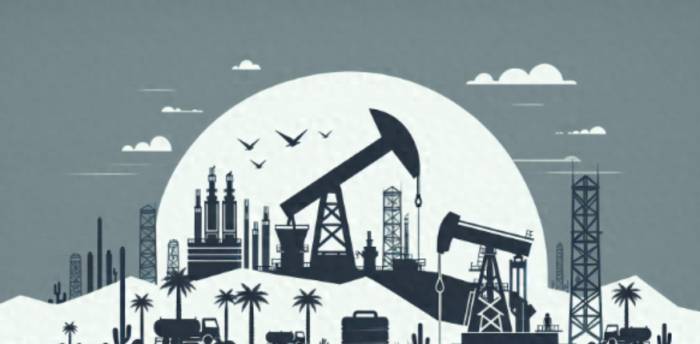Due to the tightening of Western sanctions leading to an expansion of Russian oil discounts, coupled with the severance of most natural gas supply pipelines, the main source of Russia's economy has been severely impacted.
Russia's budget deficit expanded more than expected last year, as oil and gas revenues fell by nearly a quarter, and the Kremlin's military operations in Ukraine increased expenditures.
Data from Russia's Ministry of Finance shows that the fiscal gap reached 3.2 trillion rubles (equivalent to $36.1 billion), which is 1.9% of the Gross Domestic Product (GDP). This is 300 billion rubles higher than both the budget target and the estimate made by Finance Minister Anton Siluanov at the end of last December.
Russia's expenditures last year exceeded expectations by 11%. Data from Russia's Ministry of Finance also indicates that tax revenues from oil and gas decreased by 24% year-on-year, but still accounted for nearly one-third of last year's total budget revenue.
Due to the weakness in the global crude oil market and the tightening of Western energy sanctions, the price of Russian oil has fallen. Official data shows that a significant decrease in Russia's pipeline natural gas exports and the government's generous subsidies to the country's oil industry also exacerbated the decline in net income.
As the war in Ukraine enters its third year, Russia plans to increase its military spending by nearly 70% in 2024, and the decline in national income from oil and gas adds additional pressure to the budget. With Russian President Putin preparing to seek re-election in the March elections, social expenditures are also expected to increase.
Data from Russia's Ministry of Finance shows that the average price of Russia's main crude oil export blend, Urals crude, fell by more than 17% last year, to $62.99 per barrel. This is still higher than the $60 per barrel cap set by the G7 and its allies at the end of 2022 to limit the Kremlin's income.

Since mid-October, the US Treasury has intensified monitoring of compliance with the price cap sanctions, imposing sanctions on several tankers, their owners, and crude oil traders accused of violating sanctions. This has increased the risks for Russian oil buyers, leading to an expansion of the discount for Urals crude relative to the Brent crude benchmark. According to data from Russia's Ministry of Finance, the discount reached nearly $14 per barrel in December.
Although the current discount is much lower than the level of over $30 per barrel at the beginning of the Russia-Ukraine conflict, it is still far greater than the historical average level of about $2 to $3 per barrel.
Natural gas exportsData from the Russian Ministry of Finance shows that the country's decision to cut off most pipeline natural gas supplies to Europe led to a more than 65% decrease in natural gas export tariff budget revenue last year, falling to 566 billion rubles. Russia currently has only two operational routes to Europe: one through Ukraine, and the other through the TurkStream pipeline under the Black Sea to Turkey.
Last year's natural gas production tax revenue decreased by 35% year-on-year, reflecting the huge windfall tax paid by Gazprom, the Russian natural gas company, in the second half of 2022.
Russia has not yet disclosed its data on pipeline natural gas flows for 2023. The International Energy Agency (IEA) estimates that Russia's pipeline natural gas exports to the EU have decreased by 65% compared to the previous year, amounting to only 20 to 25 billion cubic meters. European natural gas prices are less than half of the 2022 levels due to reduced consumption and mild weather, further reducing Russia's natural gas export revenue.
Data from the Russian Ministry of Finance also shows that the government paid 2.9 trillion rubles in subsidies to the oil industry last year, further reducing the net revenue figures. In comparison, the total budget expenditure for healthcare and education was 3.1 trillion rubles.
To increase revenue, the Russian government cut one of its oil industry subsidies by half in September. This move led to fuel shortages across Russia, forcing the cabinet to restore full subsidies and even implement temporary fuel export bans to curb domestic prices.